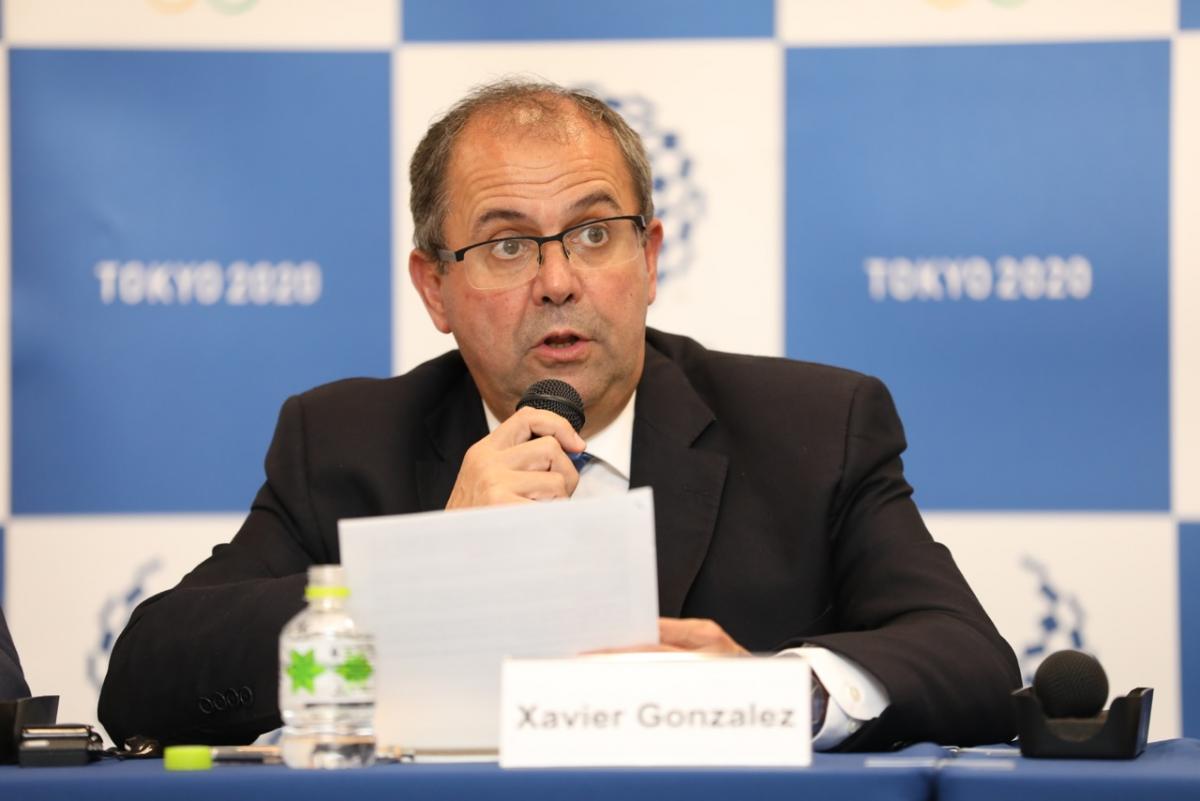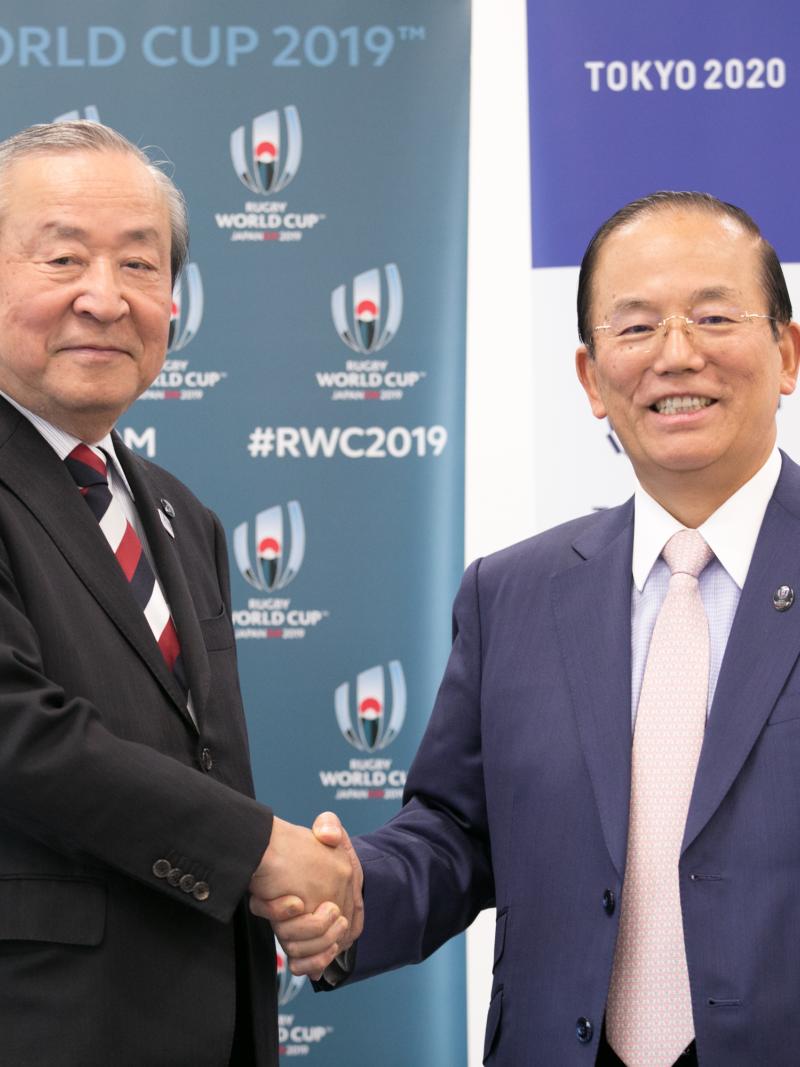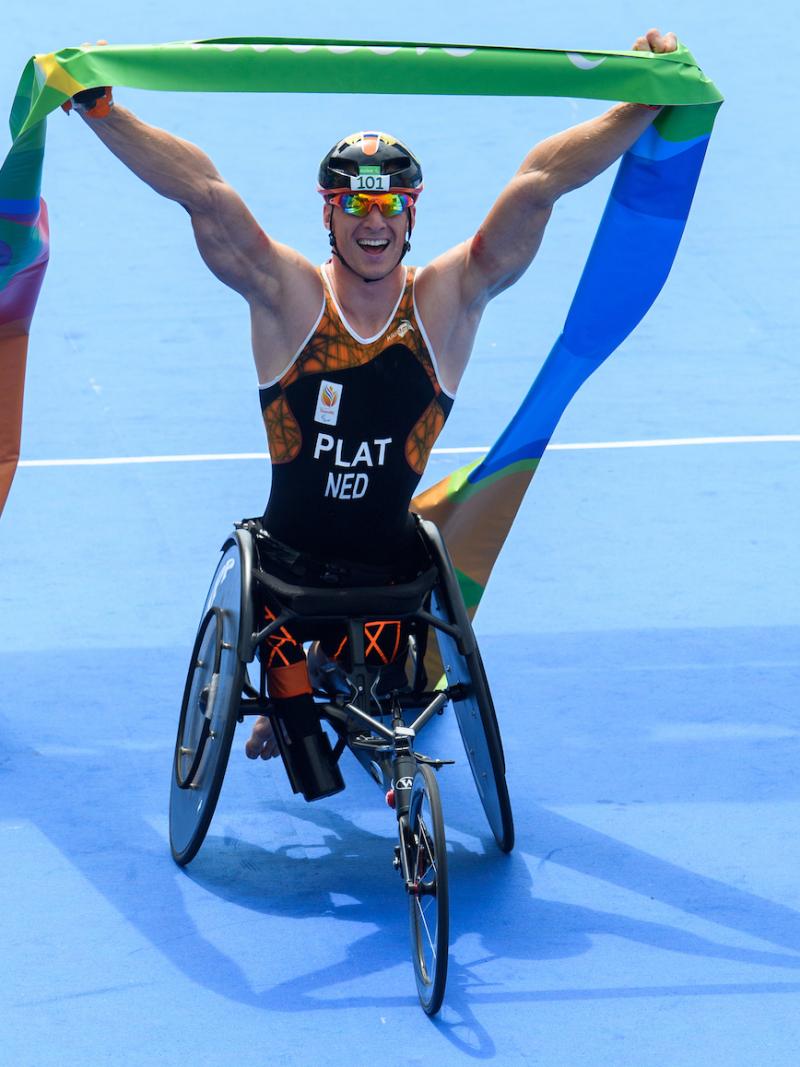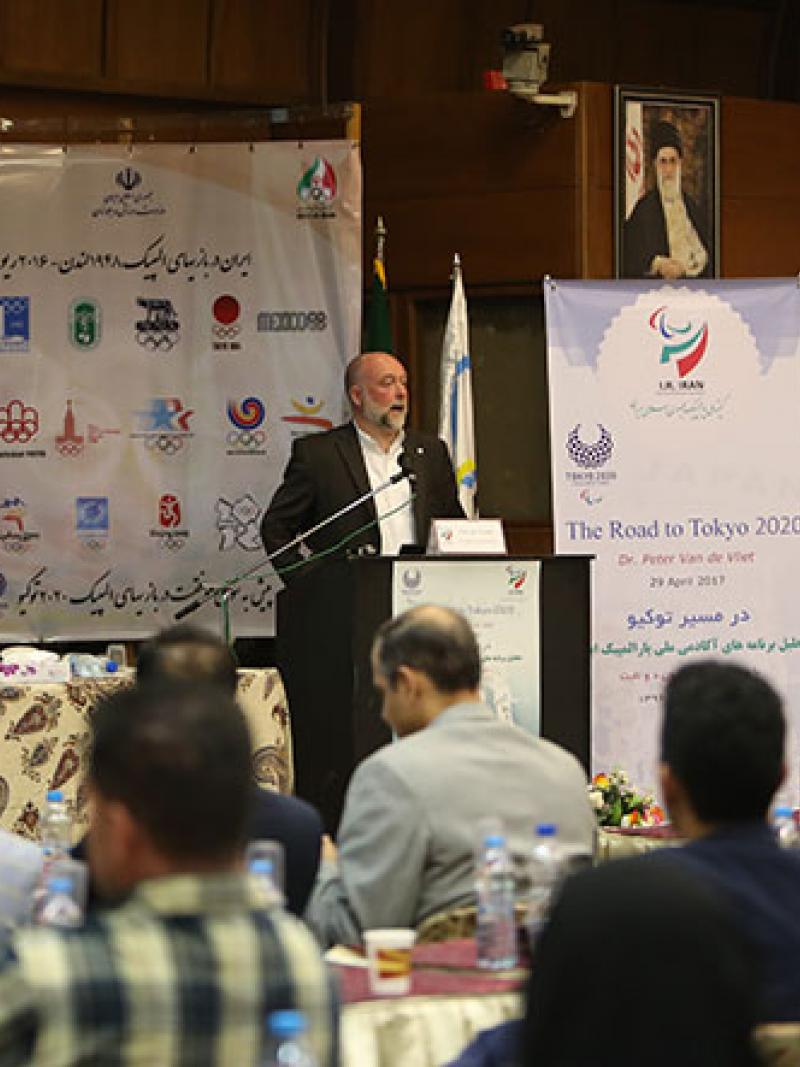The IPC greatly encouraged by Tokyo 2020 progress
The third IPC Tokyo 2020 Project Review took place between 10-11 May. 11 May 2017
Xavier Gonzalez at the Tokyo 2020 Project Review
The International Paralympic Committee (IPC) has said it is greatly encouraged by the progress made by the Tokyo 2020 Organising Committee following the conclusion of the third IPC Tokyo 2020 Project Review this week.
Two days of meetings were held in Tokyo on 10-11 May with the Tokyo 2020 Organising Committee, Tokyo Metropolitan Government (TMG) and Japanese Paralympic Committee providing updates in a number of areas.
Xavier Gonzalez, the IPC Chief Executive Officer (CEO), said he was impressed at what the IPC saw during their short stay in the Japanese capital and the level of public engagement with 1,200 days still to go until the Opening Ceremony.
“All stakeholders are showing great commitment and enthusiasm to staging the best Paralympic Games ever,” said Gonzalez.
“During our short time here we have been captivated at the visibility of the Paralympic brand around the city and on licensed merchandise. The level of interest and awareness in the Games is like nothing we have experienced with three years still to go.
“To learn that more than 11,000 people attended last week’s wheelchair basketball finals and a further 52,000 were at the TMG’s No Limits Special 2017 event in Ueno underlines the growing excitement for the Paralympics.
“Such level of engagement provides a wonderful foundation from which to build as eventually we need to translate interest and awareness into ticket sales and TV viewers.
“London 2012 set the benchmark very high when it sold more than 1 million Paralympic tickets in the first month of sales in 2011, eventually selling 2.85 million. I am confident Tokyo 2020 can set new records in this area.”
Gonzalez highlighted how Tokyo 2020 is breaking new ground in how to organise a Paralympic Games but stressed that accessibility will continue to be a priority issue for the IPC in the years leading up to the Games.
“We are greatly encouraged at the passing of the Universal Design 2020 Action Plan and the publication of Tokyo 2020’s own accessibility guidelines. Both will go some way to ensure greater inclusion for all in this city,” he said.
“We want accessibility to be a fundamental part of the design process for all the new venues built for the Games. As for existing venues, we hope that accessibility is not compromised and that all these facilities are brought up to speed with the requirements for hosting Paralympic sport.
“Across the city, TMG is doing some fantastic work in improving accessibility, but this now needs to go further and cover the private sector.
“Tokyo is already a hugely popular destination for business and tourism and the Games will boost it further. Therefore, it is vital that improvements in accessibility extend as far as the city’s hotels,” he added.
Toshiro Muto, the Tokyo 2020 Organising Committee Chief Executive, said: “This Project Review included two days of meetings and a venue tour. It was a short schedule but we had numerous side meetings and an opening plenary. We had a very active and fruitful discussion and were able to confirm the progress and issues to be addressed in each functional area.”
Before the fourth IPC Tokyo 2020 Project Review in October, the IPC has said it expects the Organising Committee to make progress in the planning of Test Events which are expected to begin in 2019 and by the end of the year have finalised the Paralympic specific budget.
Gonzalez also added that he expects the venue masterplan to be completed in mid-2018 with the approval of the road cycling venue.
“The road cycling venue can often be a challenge for Organising Committees and we are happy for Tokyo 2020 and the UCI to take the necessary time needed in order to find a suitable and correct venue.”
At the end of the Project Review, the IPC donated a number of old mobile phones to the Organising Committee. The metals from the phones will be used to produce medals for the 2020 Olympic and Paralympic Games.
Tokyo 2020 aims to collect as much as eight tons of raw metal – around 40kg of gold, 4,900kg of silver and 2,900kg of bronze - which following the production process will yield around two tons of pure metal, enough to produce 5,000 medals for the Tokyo 2020 Olympic and Paralympic Games.
The Tokyo 2020 Paralympic Games will take place between 25 August and 6 September.
 Facebook
Facebook
 Instagram
Instagram
 Twitter
Twitter
 Youtube
Youtube



